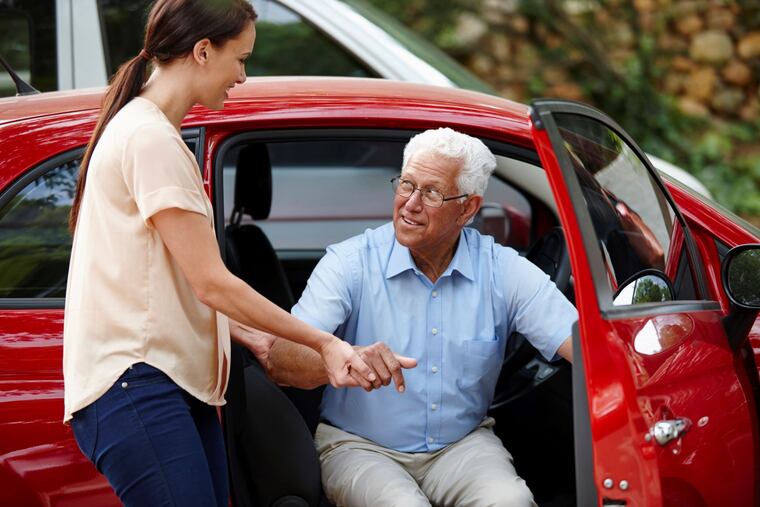Senior care requires comprehensive transportation access | Opinion
I witnessed firsthand how painful it was when my parents lost their ability to drive and, with it, their independence.

I witnessed firsthand how painful it was when my parents lost their ability to drive, and with it, their independence. My siblings and I became their lifeline to the world. My parents relied on us for driving and escorting them everywhere — doctor’s appointments, grocery shopping, errands, and social events. With small children of our own demanding round-the-clock care, it became increasingly difficult to be available for both my children’s and parents’ needs.
As our family sought a solution, I discovered the lack of reliable transportation, assistance, and companionship was far from anomalous or specific to our situation. Along with health care and finances, transportation is often identified as one of the top challenges for seniors and their families, as outlined in a report from the policy group Transportation for America.
» READ MORE: Today’s seniors report fewer depression symptoms than their parents
For these reasons, I helped found a company that offers door-through-door service where the driver-companions not only drive, but also provide assistance and companionship at all points along the journey, from pushing a grocery cart to running errands, escorting clients to and from medical appointments, and more. The goal is to help seniors, and adults who are medically infirm, stay independent, healthy, and socially active.
Through this experience, I’ve discovered there are several critical ways to ensure that seniors, including those who can no longer care for themselves, maintain independent and healthy lives.
» READ MORE: Can this co-living experiment make housing affordable for middle-class seniors?
Schedule and keep preventative health appointments. According to a 2004 study cited by Transportation for America, seniors who don’t drive make 15 percent fewer trips to the doctor (along with 59 percent fewer trips to shop or eat out, and 65 percent fewer trips to see friends and family). Regular check-ups and preventative screenings are important to ensure that seniors stay healthy.
Identify senior-friendly transportation options. If a senior is unable to drive, identify what services or public transportation options are the best fit.
Help seniors stay social. When a senior loses the ability to drive, reduced transportation options can lead to isolation, depression, poor health, and poor quality of life. Make sure you communicate with the seniors in your life and help them to maintain a consistent social calendar, whether it be attending religious services, lunch outings with friends, visiting family, or other pursuits.
Remove potential hazards. Seniors are more at risk for accidents such as falling or tripping that can result in serious injuries. Identify and remove potential hazards at home that could cause any of these accidents, such as adding ramps to curbed areas or adding handrails to bathrooms.
No matter a person’s age, most people simply want the ability to enjoy an independent life. For seniors, it may require a bit more attention and assistance to achieve this goal.
K.C. Kanaan is the co-founder and CEO of Envoy America, a comprehensive program that offers transportation plus assistance and companionship for seniors. envoyamerica.com